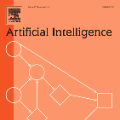
A foundational set of findable, accessible, interoperable, and reusable (FAIR) principles were proposed in 2016 as prerequisites for proper data management and stewardship, with the goal of enabling the reusability of scholarly data. The principles were also meant to apply to other digital assets, at a high level, and over time, the FAIR guiding principles have been re-interpreted or extended to include the software, tools, algorithms, and workflows that produce data. FAIR principles are now being adapted in the context of AI models and datasets. Here, we present the perspectives, vision, and experiences of researchers from different countries, disciplines, and backgrounds who are leading the definition and adoption of FAIR principles in their communities of practice, and discuss outcomes that may result from pursuing and incentivizing FAIR AI research. The material for this report builds on the FAIR for AI Workshop held at Argonne National Laboratory on June 7, 2022.
翻译:2016年提出了一套可发现、可获取、可互操作和可重复使用(FAIR)的基本原则,作为妥善管理数据和管理数据的先决条件,目的是使学术数据能够再生,这些原则还意在适用于其他数字资产,在高水平上,随着时间的推移,对FAIR指导原则进行了重新解释或扩展,以包括产生数据的软件、工具、算法和工作流程。 FAIR原则目前正在根据AI模型和数据集加以调整。在这里,我们介绍了不同国家、学科和背景的研究人员的观点、愿景和经验,他们在实践社区中领导了FAIR原则的定义和采用,并讨论了开展和鼓励FAIRAIAI研究所研究可能产生的结果。本报告的材料以FAIR研究所于2022年6月7日在Argonne国家实验室举办的AI讲习班为基础。




